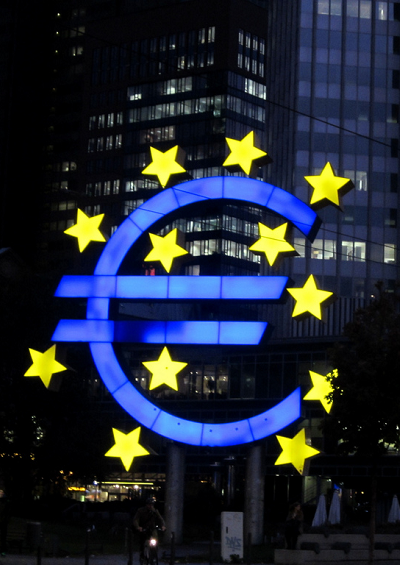Pakistan: Playing Politics with Religion
By seizing on the blasphemy issue, Imran Khan puts himself between a rock and a hard place.
August 30, 2018
Less than a week in office, Pakistan’s new Prime Minister Imran Khan has made blasphemy one of his first issues.
This not only empowers militants in his own country, but also triggers international moves long heralded by Saudi Arabia. These aim at restricting press freedom by pushing for a global ban of blasphemy.
Mr. Khan, in his first address as prime minister to the Pakistani Senate, said he intended toraise the blasphemy issue in the United Nations. He also wants to achieve a common stand within the 57-nation Organization of Islamic Cooperation (OIC).
Mr. Khan spoke after his country’s Senate adopted a resolution condemning a plan issued in the Netherlands by Geert Wilders, a militantly Islamophobic, far-right Dutch opposition leader.
Wilder’s competition
Wilders, who heads the second-largest faction in the Dutch parliament, wants to hold a competition for cartoons about the Prophet Mohammed. Many Muslims see visual depictions of the prophet as blasphemy.
The Pakistani campaign against the planned Dutch competition echoes a Muslim boycott more than a decade ago of Danish goods and protests across the Muslim world in response to publication of cartoons in a Danish newspaper that depicted the Prophet Mohammed unfavorably.
Dutch Prime Minister Mark Rutte denounced Mr. Wilder’s plan as “not respectful” and “provocative.” Even so, Rutte provoked Pakistani ire by refusing to ban the competition on the grounds that he would not curtail freedom of speech.
Mr. Khan’s newly appointed human rights minister, Shireen Mazari, a controversial academic, who two decades ago advocated nuclear strikes against Indian population centres in the event of a war, set the tone by condemning Mr. Rutte’s decision on her first day in office.
Ending diplomatic ties with the Netherlands?
Ms. Shirazi’s move bolstered plans by Tehreek-i-Labbaik Pakistan (TLP) to launch a “decisive march” from Lahore to Islamabad and “stay on the streets until either the publication of blasphemous cartoons in the Netherlands end or the government immediately ends diplomatic ties with the Dutch.”
The party also called on Mr. Khan to demand that Islamic nations together with Pakistan break off diplomatic relations with the Netherlands in protest against the planned cartoon competition.
The TLP propelled itself into prominence when it last year blocked key roads in Islamabad for weeks with seemingly tacit military approval in demand of the resignation of the then justice minister. It claimed that he had weakened the principle of Khatam-i-Nabuwwat, or the finality of Mohammed’s prophethood, that resonates strongly among many Pakistanis.
Kingmaker party calls in its chips
TLP was instrumental in helping Mr. Khan win last month’s election. A Gallup Pakistan survey said anecdotal evidence showed that TLP votes pushed Mr. Khan’s main rival, the Pakistan Muslim League – Nawaz (PML-N), into second place in many districts.
Pakistan’s constitution contains a clause that mandates the death penalty for any “imputation, insinuation or innuendo” against the Prophet Muhammad.
In Pakistan’s domestic politics, the blasphemy clause serves as a ramming rod against minorities and a means to whip crowds into a frenzy. At times, this leads to lynch mobs and vigilante killings.
Sucking up to the religious hard right
South Asia scholar Ahsan I. Butt noted shortly after the election that “Khan’s ideology and beliefs on a host of dimensions are indistinguishable from the religious hard-right.”
By prioritizing blasphemy in his first week in office, Mr. Khan is catering to a widely held anti-blasphemy sentiment among Pakistanis. He is also pleasing Saudi Arabia that has been quietly campaigning for more than a decade for a global law that would punish blasphemy.
Mr. Khan’s move comes at a moment that Pakistan is walking a fine line in the bitter rivalry between Saudi Arabia and Iran with whom Pakistan, home to the world’s largest Shiite Muslim minority, shares a border.
Saudi Arabia has called on Mr. Khan to step up support for the 41-nation, Saudi-led Islamic Military Counter-Terrorism Coalition, that is widely seen as an anti-Iranian alliance.
Pakistan reluctantly allowed retired Pakistani general Raheel Sharif to take command of the coalition in 2017. Pakistan has camouflaged its reluctance to be drawn into the Saudi-Iranian rivalry by repeatedly insisting that it would do what is needed to protect Islam’s most holy sites in the kingdom.
Pakistan’s financial crisis
Diplomatic sources suggest that Saudi financial support for Pakistan could depend on the degree to which Mr. Khan bends to the kingdom’s will. This matters because at present, Pakistan is enmeshed in yet another financial crisis.
This will likely force the country to turn to the International Monetary Fund (IMF) for the 13th time in three decades. The Saudi-backed Islamic Development Bank reportedly would be willing to lend Pakistan $4 billion.
Saudi efforts to exploit Pakistan’s precarious financial position early in Mr. Khan’s prime ministership stem not only from Pakistan’s urgent need for assistance, but also uncertainty on what Saudi-Pakistani relations will be.
Unlike ousted former prime minister Nawaz Sharif, who maintained close personal and commercial ties to the kingdom’s ruling family, Mr. Khan is less beholden to the Saudis, even if he shares much of their ultra-conservatism.
Saudi Arabia arranged for Mr. Sharif and his family to go into exile in 1999 after his then government was toppled in a military coup that brought General Pervez Musharraf to power.
“Imran Khan doesn’t feel personally obliged towards the Saudis, who have long bought Pakistan and considered it their satellite state. If there’s anything that could push his hand it’s the economic support provided by Riyadh, given Pakistan’s fiscal needs,” said Shameem Akhtar, a veteran foreign policy analyst, columnist and former dean of International Relations at Karachi University.
The risks of success
If successful in his campaign for a global law banning blasphemy, Mr. Khan will put himself, Pakistan and Islamic countries that join him in his effort in a precarious position.
It would likely open his country and the Muslim world to criticism of their silence about China’s crackdown in the north-western province of Xinjiang on Uyghur Muslims that arguably amounts to one of the most concerted attacks on Islam in recent history.
Many Muslim nations, targets of significant Chinese investment, beneficiaries of trade, and in some case heavily indebted to China, feel they cannot afford to put their economic ties to the People’s Republic in jeopardy.
Ultimately, that could put Muslim leaders, including Mr. Khan, between a rock and a hard place. They often seek to bolster their domestic and international positions by burnishing their religious credentials.
Doing so while turning a blind eye to developments in China eventually could catch up with them.
Takeaways
Less than a week in office, Pakistan's new Prime Minister Imran Khan has made blasphemy one of his first issues.
Mr. Khan is responding to a plan by Geert Wilders, a far-right Dutch opposition leader, who wants to hold a competition for cartoons about the Prophet Mohammed.
By seizing on the blasphemy issue, Imran Khan puts himself between a rock and a hard place.
If his campaign for a global law banning blasphemy succeeds, Mr. Khan will be in a precarious position. It would open his country and the Muslim world to criticism of their silence about China’s crackdown on Uyghur Muslims.
Many Muslim nations, targets of significant Chinese investment, beneficiaries of trade, and in some case heavily indebted to China, feel they cannot afford to put their economic ties to the People’s Republic in jeopardy.

